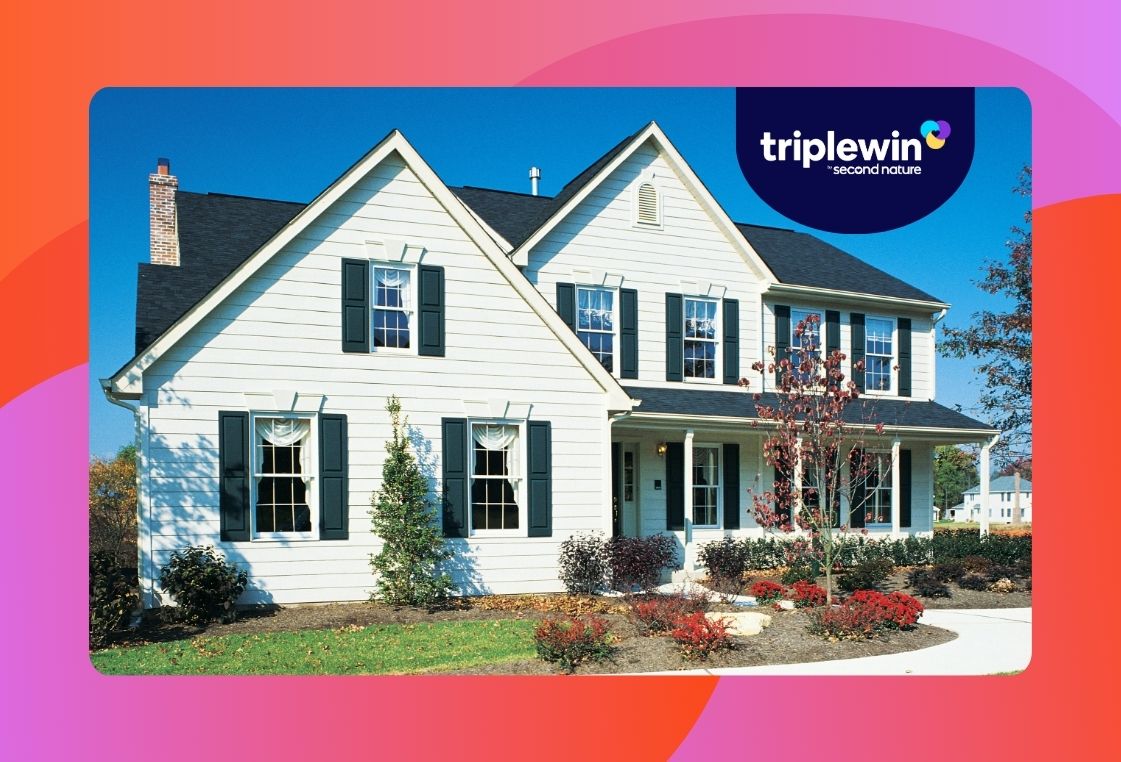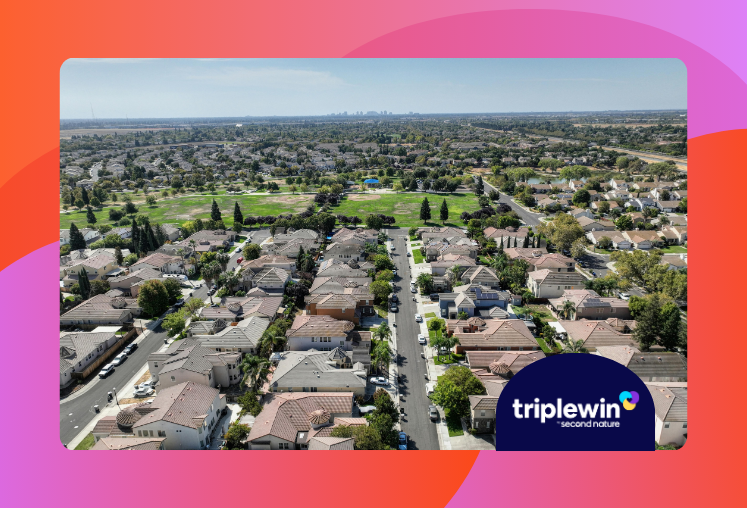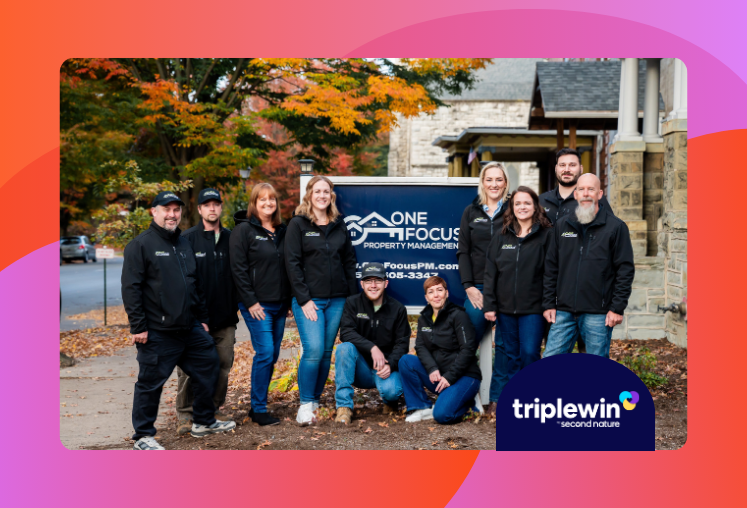Ensuring that rental properties are well-maintained is crucial for property managers and landlords, not only to protect the value of their real estate investment but also to provide safe and pleasant living environments for residents.
One important tool for maintaining property standards is a "Notice to Tenant to Clean Property" letter that communicates concerns about cleanliness and outlines necessary actions for residents.
In today’s post we’ll cover essential elements you should consider around transparency and effectiveness, as well as a sample letter you can use to craft your own notice.
Related: Free Property Management Agreement Template
A note on language: Here at Second Nature, we prefer to use the terms "resident" and “residency” rather than “tenant” and “tenancy,” in order to emphasize the human element of property management work. However, there may be instances where terms such as "tenant" are used for legal or industry-standard purposes within documents or communications. In these cases, please understand that our intent remains the same – to provide clear, accurate, and meaningful information to all people involved in the business relationship.

What to Do When Your Tenant is a Hoarder?
Hoarding can present significant challenges for property managers. It not only poses health and safety risks but can also lead to severe property damage. Here are steps to take when dealing with a hoarding situation:
Understand the issue
Hoarding is often a complex psychological condition that requires sensitivity and understanding. It’s important to approach the situation with empathy and awareness of the resident’s potential mental health needs. This understanding can guide your interactions and help you manage the situation more effectively.
Conduct thorough inspections
Regular property inspections are crucial for identifying hoarding behaviors early. These inspections should be conducted in accordance with the lease agreement and local laws. Document any findings with photographs and detailed notes to provide a clear record of the condition of the property.
Communicate clearly and compassionately
When addressing the issue with the resident, clear and compassionate communication is key. Explain the concerns and the potential consequences if the situation is not addressed. Emphasize that the goal is to ensure a safe and habitable living environment.
Provide a formal notice
If the hoarding issue violates the lease agreement, a formal "Notice to Clean Property" may be necessary (more on this below).
Collaborate with professionals
In severe cases, it may be beneficial to involve professionals who specialize in hoarding disorder. This can include social workers, mental health professionals, or professional organizers who can provide the resident with the necessary support to address their hoarding behavior.
Follow legal procedures
Ensure all actions taken are in compliance with local and state laws. This includes providing the correct amount of notice, following proper eviction procedures if necessary, and respecting the resident’s rights throughout the process.
Document all actions
Keep thorough records of all communications, inspections, and notices related to the hoarding issue. This documentation can be crucial if legal action becomes necessary and helps protect you as the property manager.
By addressing hoarding with a combination of empathy, clear communication, and adherence to legal requirements, property managers can manage these challenging situations more effectively while maintaining the safety and integrity of their properties.
Identifying When a "Notice to Clean Property" Letter is Necessary
A "Notice to Clean Property" letter becomes necessary under various circumstances. It's essential to recognize these situations in order to maintain the property's value and condition, and to ensure compliance with lease agreements.
Routine inspections
Routine inspections are an integral part of property management, allowing managers to identify issues early and address them before they escalate. If an inspection reveals unsanitary conditions, excessive clutter, hoarding, or neglect of cleanliness, a formal notice is warranted. This proactive measure helps maintain the property and encourages residents to uphold their end of the lease agreement. Failing to address these issues promptly can lead to severe problems such as mold growth, pest infestations, plumbing issues due to neglected maintenance, and increased costs associated with turnover when a property is vacated.
Complaints
Neighbor complaints regarding cleanliness issues, such as uncollected trash, odors, or visible clutter, can indicate a need for intervention. Addressing these complaints promptly with a notice demonstrates that management is responsive to concerns and committed to maintaining a harmonious living environment. Ignoring such complaints can exacerbate the problem, leading to pest infestations that can create an unhealthy living environment for residents.
Lease violations
Most lease agreements include clauses that outline residents' responsibilities for maintaining the property in a clean and sanitary condition. When these clauses are violated, issuing a notice is necessary to enforce the lease terms and remind residents of their obligations. Failing to act on these violations can result in significant property damage, including plumbing issues from unaddressed leaks or blockages, mold growth from damp conditions, and ultimately, costly repairs and renovations needed to restore the property for the next resident. This can also lead to increased turnover costs, as the property may need extensive cleaning and repairs before it can be re-leased.
The Importance of Clear Communication
Open and effective communication is vital in property management, especially when addressing cleanliness issues. A clear, well-crafted notice helps prevent minor issues from becoming major problems and sets the stage for resolution.
Proactive approach
Early intervention through timely communication can prevent minor cleanliness issues from escalating into significant problems. Addressing concerns as soon as they are identified shows residents that management is diligent and proactive.
Setting expectations
A well-crafted notice clarifies expectations for resident maintenance responsibilities. By explicitly stating what is required, renters understand their obligations and the standards of occupancy they must meet.
Documentation
The notice serves as a documented record of the identified issue and the steps taken to address it. This documentation is crucial for protecting the property manager's interests if further action is needed, such as additional fees or eviction proceedings.
Note that property managers can proactively address cleanliness and maintenance issues by clearly setting expectations with new tenants from the outset. This can be achieved by including a detailed cleanliness clause in the lease agreement, conducting a thorough walkthrough of the rental unit at move-in, and providing a welcome packet to ensure each tenant knows their responsibilities.
During the initial walkthrough, managers should highlight specific cleaning requirements and standards, demonstrating proper care for different areas of the property. Regular communication, such as periodic reminders and tips for maintaining the property, can further reinforce these expectations and prevent issues from arising, ensuring a smooth and mutually respectful resident-PM relationship.
Crafting a Compelling and Effective Notice
Creating an effective "Notice to Clean Property" involves several key elements that ensure clarity and encourage compliance.
Introduction
Begin the written notice with a clear statement of its purpose as a formal notification regarding the property's cleanliness and upkeep condition. Include the property address and the resident's name(s) to avoid any confusion.
Specific observations
Detail the cleanliness issues observed during the inspection or reported by others. Use clear, descriptive language to ensure there is no ambiguity about the concerns. For example, instead of saying "the property is dirty," specify "dirty dishes are piling up, attracting roaches/pests; or “an abundance of waste materials is creating a health hazard/fire hazard." This also helps differentiate the cleanliness issue from normal wear and tear.
Reference to lease agreement (optional)
If applicable, cite relevant clauses in the rental agreement that outline the resident’s responsibility for maintaining the property in a clean and sanitary condition. This reference reinforces the legal basis for the notice and the resident's obligations – and helps ensure that you are respecting applicable tenant rights and state laws.
Outline of expectations
Clearly define the expected level of cleanliness and specific actions required to rectify the situation. A timeframe for follow-up is useful for helping the resident to address the issues, such as a 7-day notice period to clean. This approach gives residents a clear understanding of what needs to be done and by when.
Consequences for non-compliance (optional)
Briefly outline potential consequences for failure to address the cleanliness concerns within the designated timeframe. This might include increased inspections, withholding of security deposits, or legal action, including a potential order to vacate/eviction notice. Note that although it may well become necessary to instigate an eviction process, it’s important to maintain a professional tone and avoid excessive threats to encourage cooperation.
Related: How to Write a Tenant Welcome Letter + Free Template
Additional Considerations for Specific Situations
Different scenarios may require tailored approaches when issuing a proper notice to clean the property.
Health and safety hazards
If the cleanliness issue poses a potential health or safety hazard, such as mildew/mold growth, pest infestations, or overflowing sewage, prioritize immediate action. In such cases, involving relevant authorities might be necessary to ensure the issue is resolved promptly and safely.
Chronic offenders
For residents with a history of neglecting cleanliness standards, consider outlining a stricter course of action. This might include increased inspections or even potential lease termination if the behavior continues. Clear documentation and a consistent approach are essential when dealing with chronic offenses.
Delivery Methods and Maintaining Records
Ensuring that the notice is delivered and documented correctly is crucial for effective property management.
Delivery methods
Consider the following methods for delivering the notice:
- Hand-delivery with a signed receipt: This method ensures the resident receives the notice and acknowledges its receipt.
- Certified mail with return receipt requested: This provides documented proof that the notice was sent and received.
- Other methods with documented proof of delivery: Any method that provides verifiable proof of delivery is acceptable.
Maintaining records
Retain copies of the notice, delivery confirmation, and any relevant communication for your records. This documentation is crucial if further action is necessary and serves as evidence that the issue was addressed appropriately.
Free “Notice to Tenant to Clean Property” Template
Providing a template can simplify the process for property managers. However, it's essential to note that legal advice is recommended to ensure compliance with local laws and regulations.
```
[Your Name]
[Your Address]
[City, State, ZIP Code]
[Date]
[Resident's Name]
[Property Address]
[City, State, ZIP Code]
Re: Notice to Clean Property
Dear [Resident's Name],
This letter serves as a formal notification regarding the cleanliness condition of the property located at [Property Address]. During a recent inspection conducted on [Date], the following issues were observed:
- [Detail the specific cleanliness issues]
As per the lease agreement, Section [Lease Section], you are required to maintain the property in a clean and sanitary condition. To rectify the situation, please take the following actions by [Specify Deadline, e.g., 14 days from the date of this letter]:
- [List the specific actions required]
Failure to address these concerns within the specified timeframe may result in [potential consequences, such as additional fees, increased inspections, or eviction proceedings].
We appreciate your prompt attention to this matter. Please contact us at [Your Phone Number] if you have any questions or need further clarification.
Sincerely,
[Your Name]
[Title]
[Contact Information]
...

Promoting a Culture of Responsibility
Maintaining a clean and well-kept property is a shared responsibility between residents and property management. By promoting a culture of responsibility, property managers can create a positive living environment that benefits everyone involved.
Encouraging residents to take pride in their living spaces and providing resources such as Second Nature’s Resident Benefits Package (RBP) can foster this culture. The RBP can include regular maintenance tips, access to cleaning services, or rewards for maintaining high standards of cleanliness.
Ultimately, a collaborative approach leads to what we at Second Nature call a "triple win" — residents enjoy a pleasant living environment, owners maintain their investments, and PMs have an easier role to play in maintaining these thriving, beneficial relationships.



